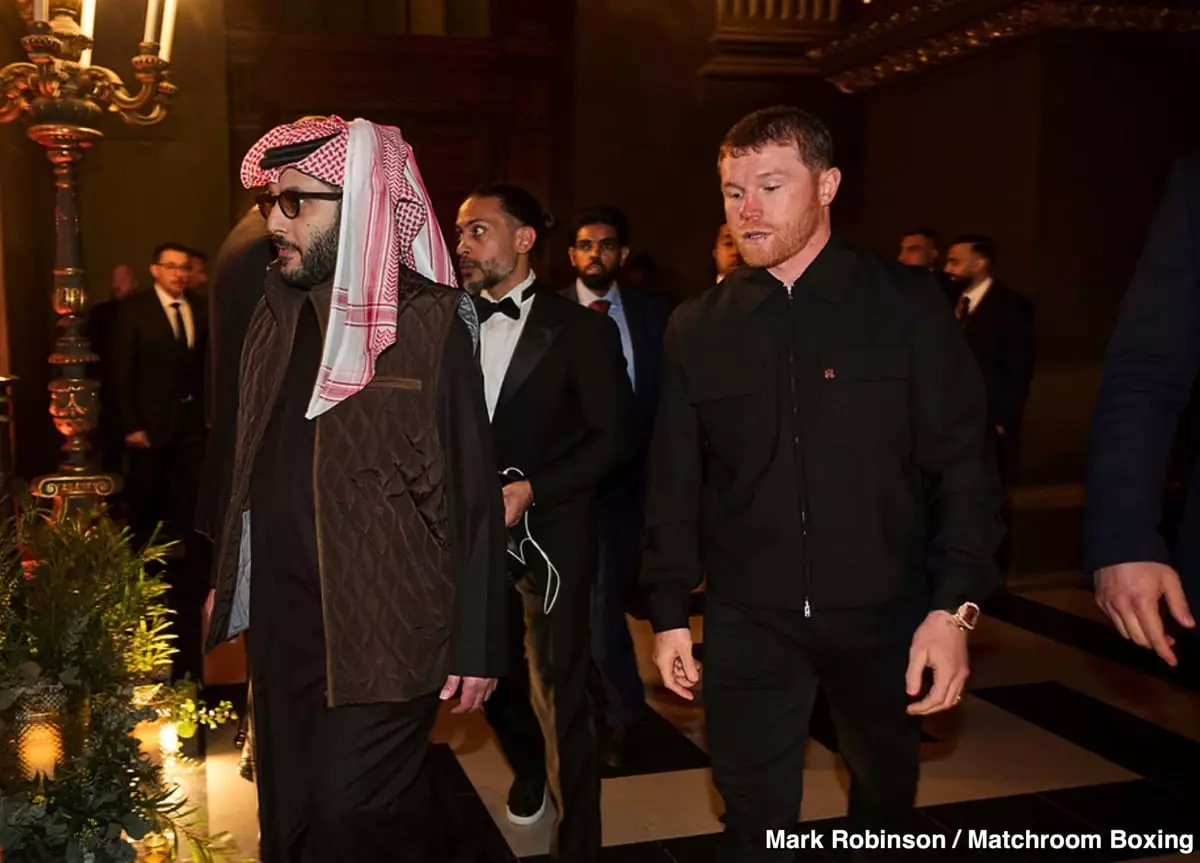The world of boxing has seen its fair share of controversies, but the recent spat between Oscar De La Hoya and Canelo Alvarez has ignited a particularly fierce dialogue about loyalty, integrity, and the ever-increasing commercialization of the sport. De La Hoya’s remarks during his ‘Clap Back Thursday’ episode have stirred the pot, as he lambasts Canelo for seeking financial gain over fulfilling his obligations to fans and the boxing community. This article will unpack the complexities within this dispute, analyze De La Hoya’s assertions, and reflect on what this signifies for the sport of boxing.
The Origins of Conflict: Choices and Consequences
At the heart of De La Hoya’s criticisms is Canelo Alvarez’s recent decision to enter into a lucrative four-fight agreement with Turki Al-Sheikh instead of facing Jake Paul, a fight that, although unconventional, had generated significant public interest. De La Hoya accuses Canelo of being a “money-hungry” fighter, indicating that the Mexican superstar is willing to sacrifice critical bouts that fans yearn for in favor of contracts that fill his bank account. By aligning his priorities with financial incentives, Canelo reinforces his status as a “diva” in the eyes of traditional boxing fans, who expect fighters to honor the sport’s history of fierce competition.
While financial security in the sport is essential, De La Hoya’s points raise questions about the ethical responsibilities of athletes toward their fan base and communities. For many boxing enthusiasts, Canelo’s decision reflects a troubling trend in modern sports—a shift away from the athlete’s duty to provide thrilling battles to the masses, instead privileging financial negotiations. This begs the question: are athletes motivated by legacy and honor, or are they predominantly pursuing profit?
De La Hoya specifically calls out Canelo for opting to fight William Scull instead of David Benavidez, a choice fans widely viewed as a significant letdown. Benavidez’s recent victory positioned him as a prime contender, and many believe a fight between him and Canelo would have brought excitement and revitalization to the boxing arena, particularly around a date as culturally significant as Cinco de Mayo.
The choice of Scull, who recently edged out a controversial win, further exacerbates the perception that Canelo is avoiding high-stakes bouts that could tarnish his carefully curated reputation. De La Hoya’s scathing critique of Canelo’s logic—claiming that the latter fears giving Benavidez a payday due to perceived trash talk—offers an insight into a broader dilemma within boxing: the game of politics that sometimes overshadows the sport’s grittier and more competitive nature.
Canelo’s behavior appears to foster an environment where fighters prioritize their individual narratives and revenue streams over irrefutable competition. In a sport historically defined by warrior spirit and honor, the prospect of a boxer dreading the potential embarrassment of a loss causes many fans to question the integrity of the sport.
De La Hoya, a legend who experienced great success by willingly taking on the best challengers in his prime, believes Canelo’s choices have inadvertently shaped what he describes as the “softest, money-hungry” era in boxing. He argues that boxing heroes of his generation sought glory, eagerly facing formidable opponents and taking calculated risks for the love of the sport.
In contrast, the current atmosphere, as characterized by De La Hoya, seems laden with reluctance and a predefined roadmap of financially beneficial matchups rather than thrilling showdowns. Canelo’s influence in the sport could be viewed as dual-edged; his success has established him as an undeniable star, yet it has also birthed a fixation on financial motives that seems to eclipse honor and valor.
This dichotomy is emblematic of a broader predicament facing boxing today, as it grapples with the challenge of drawing in new fans while catering to established audiences that seek compelling narratives and fierce contest. As the influence of social media stars like Jake Paul rises, the lines between traditional boxing and entertainment continue to blur, raising fundamental questions regarding the sport’s future trajectory and identity.
As the discourse between De La Hoya and Canelo fuels further discussion about loyalty, financial gain, and the essence of boxing, it serves as a reminder that athletes have a significant role to play in shaping the industry. Canelo must navigate his choices with an awareness of the implications they carry for both his legacy and the sport as a whole. Ultimately, the boxing community craves fighters who not only relish in victory but are also brave enough to fight their fiercest competitors. Only then can the essence of boxing be rekindled, restoring honor and excitement to a sport that has faced the perils of commercialization.

